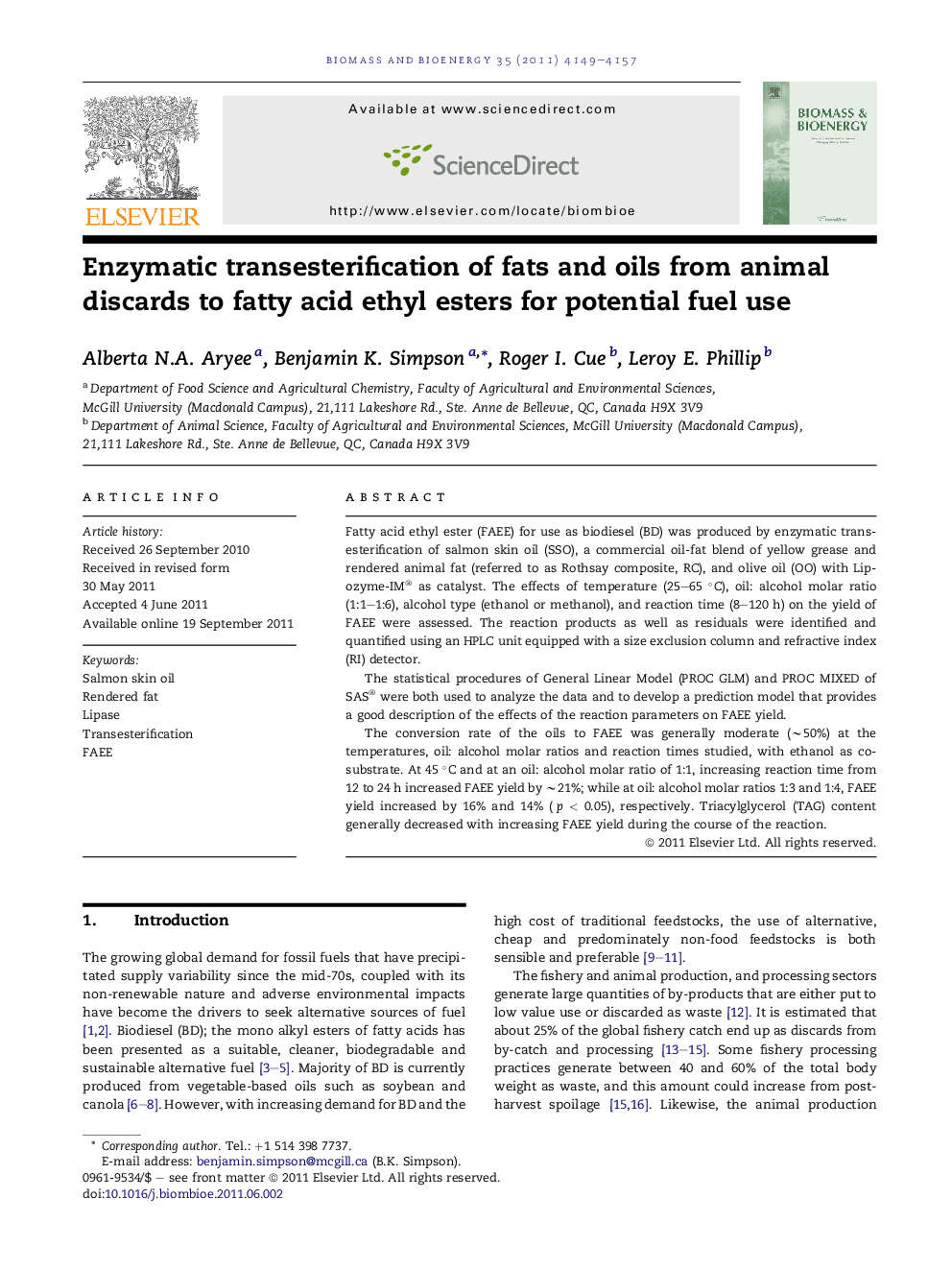| Article ID | Journal | Published Year | Pages | File Type |
|---|---|---|---|---|
| 677959 | Biomass and Bioenergy | 2011 | 9 Pages |
Fatty acid ethyl ester (FAEE) for use as biodiesel (BD) was produced by enzymatic transesterification of salmon skin oil (SSO), a commercial oil-fat blend of yellow grease and rendered animal fat (referred to as Rothsay composite, RC), and olive oil (OO) with Lipozyme-IM® as catalyst. The effects of temperature (25–65 °C), oil: alcohol molar ratio (1:1–1:6), alcohol type (ethanol or methanol), and reaction time (8–120 h) on the yield of FAEE were assessed. The reaction products as well as residuals were identified and quantified using an HPLC unit equipped with a size exclusion column and refractive index (RI) detector.The statistical procedures of General Linear Model (PROC GLM) and PROC MIXED of SAS® were both used to analyze the data and to develop a prediction model that provides a good description of the effects of the reaction parameters on FAEE yield.The conversion rate of the oils to FAEE was generally moderate (∼50%) at the temperatures, oil: alcohol molar ratios and reaction times studied, with ethanol as co-substrate. At 45 °C and at an oil: alcohol molar ratio of 1:1, increasing reaction time from 12 to 24 h increased FAEE yield by ∼21%; while at oil: alcohol molar ratios 1:3 and 1:4, FAEE yield increased by 16% and 14% (p < 0.05), respectively. Triacylglycerol (TAG) content generally decreased with increasing FAEE yield during the course of the reaction.
► Salmon skin oil, rendered animal fat, and olive oil were converted to FAEE. ► An immobilized lipase was used for the transesterification reaction. ► The effect and interactions of temperature, oil: alcohol ratio, and time on FAEE yield were examined.
